Students
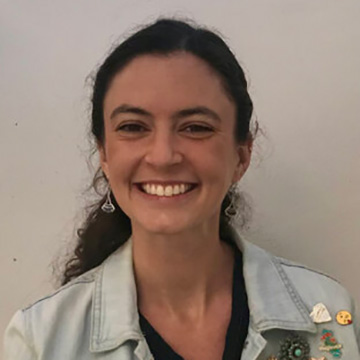
Rachel Abbott
Rachel Abbott (she/her/hers), MSc is a global health researcher from California with over 7 years of project management experience focused on health equity, domestically and globally. In 2017, she interned with the Elephants and Bees Research Project in Tsavo, Kenya, focused on lasting community health initiatives. In 2018, she received her MSc in Epidemiology from the London School of Hygiene and Tropical Medicine. For her master’s thesis, Rachel explored predictors of early childbearing among Kenyan women. Before joining UCSF in 2021, she was the Program Coordinator for UCLA’s Global Health Program, where she focused on advancing bilateral, equitable international partnerships. Currently at UCSF, she is the Project Manager of the SONET study (socio-spatial networks and TB infection in children and youth in rural Uganda) as well as San Francisco-based COVID-19, HIV, and multi disease testing projects. Her research interests lie in child and adolescent Tuberculosis transmission and prevention and implementation science.
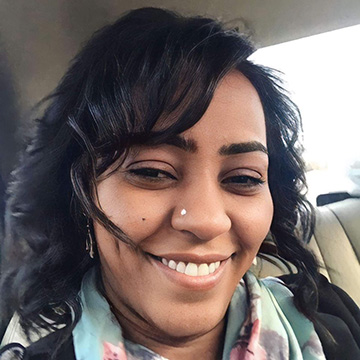
Amira Adam
Amira is a global health researcher and program implementer from Sudan with 15 years of experience in HIV/AIDS, infectious diseases, SRH, and health systems strengthening. She earned her MPH in Global Health from University of Washington and her bachelor in dental surgery from university of Khartoum. She has extensive experience in strategic planning, project management, M&E, and research in MENA region, Sub-Saharan Africa and South Asia. Throughout her career she worked with MOH, HAI, ICRW, UNDP and WHO implementing health projects for major donors like Global Fund, USAID, and EU. As HIV officer at WHO Sudan she worked with MOH on mitigating of covid-19 impact of the HIV services where she lead the search and rescue initiative aimed at finding lost to follow up PLHIV and reengage them back to care, this initiative was highlighted in the HIV Global report 2021. Her research interests lie in infectious diseases and SRH and how to use implementation science to improve health outcome and reduce inequality.
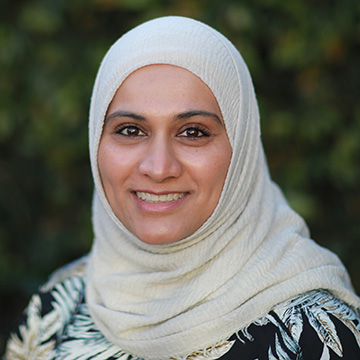
Muna Bashir
Muna Bashir holds an MA in maternal-child health systems from Bastyr University and a BS in Biology from the University of Texas at Dallas. She has over 20 years of experience with supporting childbearing families and birth professionals in diverse settings across the United States, Canada, and overseas. Her niche lies in aiding immigrant families with past birth-related trauma achieve more positive birth experiences, especially those who come from countries in South Asia, Middle East, and Africa. Muna has helped establish evidence-based programs and services at large birthing facilities to improve patient-provider interactions, promote effective nurse-doula communication, reduce surgical birth rates, and boost quality of care. She strives to advance health equity and best care practices among global communities. Muna has served on the executive board for the Prevention and Treatment of Traumatic Childbirth (PATTCh), which provides perinatal mental health support services to both parents and professionals. Drawing upon multidisciplinary and mixed-methods research methodologies, Muna seeks to implement social and behavioral interventions that inform the uptake of more effective programs and policies for improving maternal and child health outcomes worldwide.

Atousa Bonyani
Atousa, PharmD, MS, is an Iranian global health researcher and policy analyst focused on advancing access to essential medicines and strengthening health systems. She earned her Doctor of Pharmacy from Isfahan University of Medical Sciences in 2017 and completed a Master of Science in Global Health at the University of California, San Francisco (UCSF) in 2024. Atousa worked with the World Health Organization in the Health Systems Strengthening Department, contributing to initiatives on access to medicines, vaccines, and health technologies. She had also held research roles at UCSF and the Yale School of Public Health. Her work includes studies on access to diabetes and hypertension medicines, as well as broader research on health systems, including access to care, surveillance, and health workforce development. Her research interests include health economics, pharmaceutical policy, and equitable care delivery. Atousa continues to pursue applied global health research that informs policy and improves access.
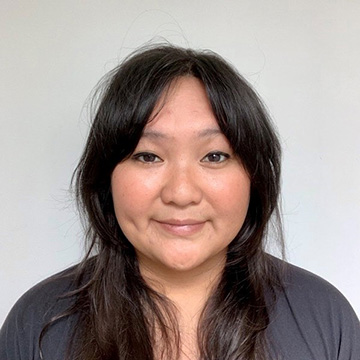
Chesa Cox
Chesa Cox, MPH (she/her), received her MPH in 2016 from the UC Berkeley School of Public Health, where she participated in the USAID Global Development Fellowship for 3 months in Cape Town, South Africa, researching the immunomodulatory compounds of garlic as an accessible option for cancer prevention. After graduate school, she was a Global Health Strategic Information Fellow for 2 years with the CDC’s Division of Global HIV and TB working on PEPFAR data collection and management. Most recently, Chesa has been working within the Division of HIV, Infectious Diseases, and Global Medicine at UCSF alongside Dr. Diane Havlir as an Executive Assistant where she has been helping with division initiatives and local public health projects, such as Unidos en Salud. She is excited to return to academia and research, where her primary interests include using implementation science methods and approaches to improve health equity amongst vulnerable populations.

Sitalire Kapira
Sitalire is a Global Health and Social Medicine professional and maternal health advocate with over a decade of experience working in resource-constrained health systems in Malawi. Having worked with the government of Malawi’s Ministry of Health and Partners in Health, Malawi, Sitalire led program development, monitoring and evaluation, and strategic partnerships focused on integrated maternal, neonatal, adolescent, and child health services. He is also actively involved in research collaborations, mentoring junior health professionals, and advocating for national policy. His work explores the intersection of health policy, service delivery, and community engagement in driving equitable maternal health outcomes. Sitalire holds a Master of Medical Science in Global Health Delivery from Harvard University, obtained in 2021, and a Bachelor of Science in Obstetrics and International Leadership from Warwick University, United Kingdom, obtained in 2014.

Sigal Maya
Sigal is a global health researcher specializing in health economics and policy. She holds a MS in Global Health Sciences from UCSF and a BS in Chemical Engineering from Koc University in Turkey. Currently a research specialist at UCSF, she employs quantitative modeling and economic evaluation to address pressing global health challenges and inform effective policy development. Her research interests include climate change and human health, as well as healthcare security. She was the lead analyst on a project evaluating the impact of wildfire smoke on asthma control, and she currently leads a resource allocation model for dementia detection and care. Her prior work on evaluating the cost-effectiveness of COVID-19 screening strategies has helped inform the development of guidance for schools in California during the pandemic.
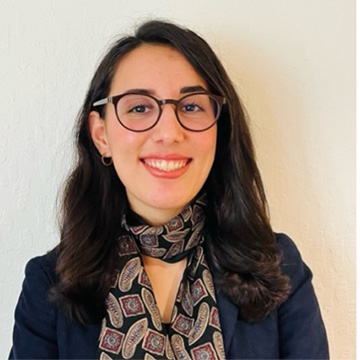
Sima Naderi
Sima Naderi (she/her/hers), MPH, MSc, is a Global Health researcher from Afghanistan. She completed her undergraduate and master’s in public health at Kabul University of Medical Science, Kabul, Afghanistan, and she earned her MSc in Global Health from UCSF, in 2023. Previously, she was an Assistant Professor at the Kabul University of Medical Science, Department of Epidemiology and Biostatistics, Kabul, Afghanistan. She worked at the vice president`s office as the senior data scientist in Afghanistan. Her work with UCSF started in early 2021 when she joined the International Traineeships in AIDS Prevention Studies program (ITAPS). Her research area includes quantitative and qualitative research, spans maternal and reproductive health, mental health and substance use, and studies of barriers accessing to health and non-health services among Afghan refugees in the US. She has been the co-investigator and data scientist for studies jointly conducted between Kabul Medical University, the University of British Columbia, and Can-Health International. Currently, she is working on a project on the health and life vulnerabilities of Afghan refugees in the United States, and she started her affiliation with ReproNet as ReproNet Health Equity Scholar.

Samuel Negash
Samuel is a pediatric surgeon based in Ethiopia. He earned his MD in 2015 and completed his pediatric surgery specialty training in 2022 at Addis Ababa University, where he also obtained an MSc in Public Health Data Science in 2025. In addition to his clinical practice at Menelik II Hospital, he has served as a research associate with Lifebox and collaborated on surgical systems research with KidsOR and the UCSF CHESA initiative. His primary research interests include access to surgical care for children, health systems strengthening, and advancing health equity in low-resource settings. By combining clinical care and public health, he aims to improve the availability, quality, and outcomes of surgical care for children in sub-Saharan Africa and other underserved regions.
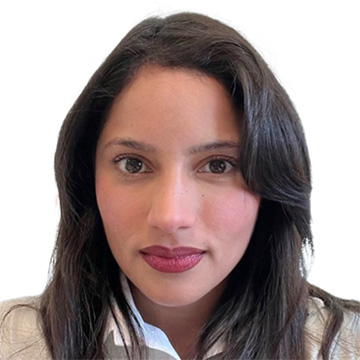
Veronique Whittaker
Veronique Whittaker, MPH, is a global health researcher with a background in epidemiology and international education. With over a decade of experience working in education, community action, and environmental health across Asia and Europe, Veronique’s community work in Vietnam developed her interest in investigating the long-term health impacts of chemical agents on land and people. She holds a B.A. in Human Rights from Bard College in New York and an MPH from King’s College London, where she explored the links between climate change and Dengue Fever in francophone Africa and the Indian subcontinent. Most recently, she was the lead analyst for the COVID-19 Epidemiology Intelligence Project at The Medical University of South Carolina. In this role, she collaborated with university and government leaders throughout the pandemic, informing decision-making and developing health policy. Her research interests include the impact of climate change on infectious diseases, global health diplomacy, global health security, and digital technologies in health. She is a native of Santa Cruz, California.
Candidates
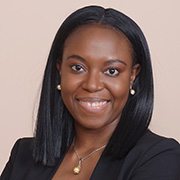
Melissa Carvalho
Melissa Carvalho, MPH, is a global health researcher from Senegal. In 2016, she received her MPH in Chronic Disease Epidemiology from the Yale School of Public Health. For her master’s thesis, Melissa conducted fieldwork in rural Malawi, exploring factors associated with the acceptability and service utilization of cervical cancer screening. After graduate school, she spent five years working as a Global Surgery Program Manager for the UCSF and UCLA Departments of Surgery. In this capacity, she managed a diverse research portfolio of epidemiological and clinical studies, primarily focused on strengthening surgical systems and characterizing the unmet surgical disease burden in Sub-Saharan Africa. Melissa has helped develop hospital-based injury surveillance systems in Cameroon and Uganda and implement NIH-funded projects building capacity for trauma QI and mHealth follow-up after hospital discharge. Her research interests lie in cancer care equity and optimizing global cancer care delivery systems using implementation science methods and approaches.
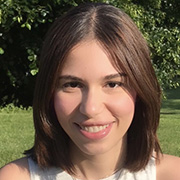
Sammer Elsayed
Sammer Elsayed, MPH, is a global specialist in anticorruption and governance in health with seven years of experience working with institutions including WHO, UNDP and the Global Fund. Sammer is the co-author of several frameworks including the conceptual corruption risk management at the sectoral level, policy-makers guide for accountability in health and the decision-making model for private sector engagement in healthcare. Since 2014, she has worked with 22 Middle Eastern and African countries to build resilient and accountable healthcare institutions through a participatory approach that involved all health actors. Sammer was also part of the team for Cairo University Hospitals that developed the proposal awarded funding of 120 million USD in an agreement with the Saudi Fund for Development. She is interested in studying the impact of corruption on access to essential medicines, including COVID-19 vaccines. Sammer is a pharmacist and holds an MPH from the University of Glasgow.
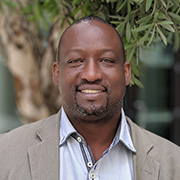
Johnson John Lyimo
Johnson John Lyimo, MD, MPH, is a Tanzanian public health specialist. He completed his medical training at the Muhimbili University College of Health Sciences of the University of Dar es Salaam in 2002, and in 2005 pursued a Master of Public Health at Dartmouth College as a Fogarty International Center fellow. He has over 10 years’ professional experience in the programmatic implementation of tuberculosis (TB) control, including drug-resistant TB control interventions at the national level through his work with the National TB and Leprosy Programme. Johnson’s research interests include drug-resistant TB case detection and linkages to improved treatment regimens in Tanzania, which are aligned to global TB elimination targets for 2030.
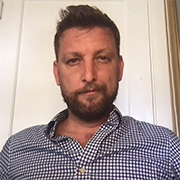
Alexander Marr
Alexander Marr holds an MPH in epidemiology from Tulane University School of Tropical Medicine and a BA in biology from Boston University. In addition, he completed a fellowship with the California Epidemiologic Investigative Service. His background has been primarily in STD and HIV surveillance in sub-Saharan Africa and the Caribbean, completing over 12 bio-behavioral health surveys from South Africa to Jamaica. Since the COVID-19 pandemic began, he has redirected focus to work on creating healthy and safe communities in California. Starting with leading contact tracing teams in San Francisco, he has since served as the founder and technical director for the outbreak management training utilized by the state of California for all 61 local health jurisdictions. He is a proud Returned Peace Corps volunteer from Botswana, 2009-2011.
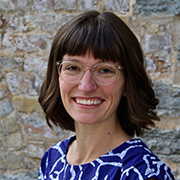
Ashley Mitchell
Ashley Mitchell, MPH (she/her), is a public health educator, practitioner, and researcher who earned a master’s degree from the University of Minnesota (UMN). Her most recent opportunities involved developing and teaching public health courses at UMN as well as collaborating with displaced and migrant communities to reduce health disparities in Minnesota at WellShare International. Grateful for experiences across academic institutions, government agencies, community health centers, and nonprofits in the United States, Sierra Leone, and Ethiopia, Ashley plans to remain at the intersections of academia, community partnership, and research. She desires to engage in inquiry and praxis that advances health equity and agency—particularly among people with the capacity for pregnancy. Drawing inspiration from intersectional feminism and decolonization, Ashley’s primary research interests include global reproductive health, wellness, and justice.
Alumni
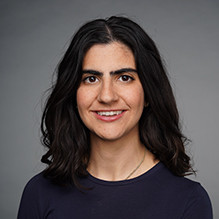
Lucía Abascal Miguel, PhD, MD, MS
Graduation Date: 2023
Dissertation: VACÚNATE: Vaccine access through communication, understanding, and tailored interventions
Advisor: Margaret Handley
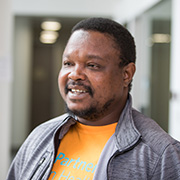
Mohamed Bailor Barrie, PhD, MD, MSc
Graduation Date: 2024
Dissertation: Is Horizontally Integrated Health Care Superior to Vertically Funded Programs: Toward an Understanding of the Merits of Horizontal Integration. A Case Study From Sierra Leone
Advisor: Elizabeth Fair
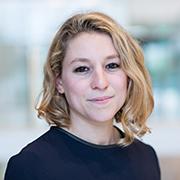
Emily Behar, PhD, MS
Graduation Date: 2019
Dissertation: Getting to Zero Overdoses: Exploring Patient’s Opioid Using Experiences Amidst a National Overdose Crisis
Advisor: Claire Brindis
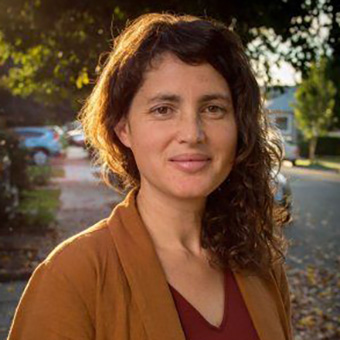
Naomi Beyeler, PhD, MPH, MCP
Graduation Date: 2023
Dissertation: Advancing a social determinants approach to climate change and health equity
Advisor: Laura Schmidt
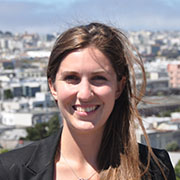
Canice Christian, PhD, MSc
Graduation Date: 2023
Dissertation: Application of individual-level and health system-level implementation approaches to HIV and TB prevention in Uganda
Advisor: Gabriel Chambie
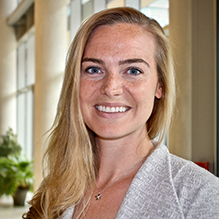
Jane Fieldhouse, PhD, MSc
Graduation Date: 2023
Dissertation: One Health Timeliness Metrics: A cross-cutting tool to advance epidemic and pandemic preparedness and prevention
Advisor: Jonna Mazet
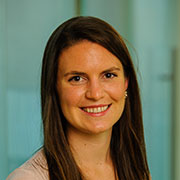
Sarah Gallalee, PhD, MPH
Graduation Date: 2023
Dissertation: Surveillance and response for malaria high-risk populations: tailored approaches to reach persistent pockets of transmission
Advisor: Jennifer Smith
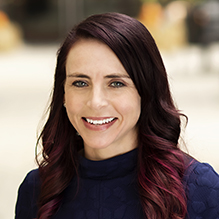
Teresa Kortz, PhD, MD, MS
Graduation Date: 2023
Dissertation: The burden of pediatric critical illness in resource-limited settings
Advisor: Philip Rosenthal
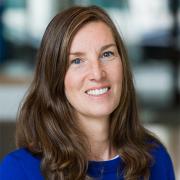
Amy Lockwood, PhD, MBA, MS
Graduation Date: 2019
Dissertation: Soft Skills Matter: The Impact of Leadership and Management on Global Health Outcomes
Advisor: Eric Goosby
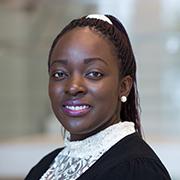
Maricianah Onono, PhD, MS, MBChB
Graduation Date: 2019
Advisors: Claire Brindis and George Rutherford
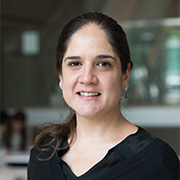
Andrea Pedroza-Tobias, PhD, MS
Graduation Date: 2022
Dissertation: Evaluating how innovative nutrition policies promote healthy diets to reduce the burden of non-communicable diseases
Advisor: Laura Schmidt
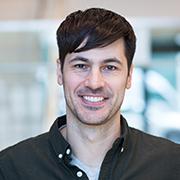
Nicholas Rubashkin, PhD, MD, MA
Graduation Date: 2021
Advisor: Vincanne Adams
